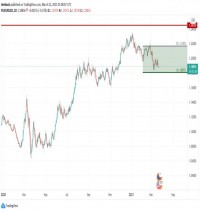|
Blake Goud is the principal of Sharing Risk dot Org (see
reference link), he is an expert researcher on Islamic finance as well as a
freelance journalist with a monthly column in Business Islamica magazine and the
US correspondent for Islamic Business & Finance magazine. His areas of focus
within Islamic finance are its growth within non-Muslim-majority countries,
microfinance and the interaction of Islamic finance with other forms of ethical
finance. He currently serves as Chief Compliance Officer of Marquam Capital, an
investment advisory firm specializing in ethical investing. Several of the misconceptions (for example that Islamic finance is terrorist
financing, it is for Muslims only and that it is welfare finance) are commonly
enough understood as false that they need no detailed explanation. However,
there are several that deserve a brief overview. The report clarifies the debate
about standardization in Islamic finance by pointing out the wide areas where
there is standardization. For example, many Islamic banks' products are nearly
identical globally. The contentious areas of standardization remain under debate
but many aspects of Islamic finance are standardized, for example accounting and
auditing standards developed by AAOIFI. Another area where the report provides a good overview is dealing with the idea that Islamic finance is intrinsically superior to the conventional financial industry; that it is less risky, has lower costs of funds and is immune from crisis and unethical dealings. Islamic finance may strive to be more ethically-driven than the conventional financial industry, but that depends on individuals' behavior. There is no guarantee that Islamic finance practitioners will behave in a more ethical way. A recent article from July 2, 2010 in Reuters described the difficulty of Islamic finance growing in Egypt in part because there were many frauds in the 1980s by investment companies that labelled themselves as 'Islamic'. Just as Islamic finance depends on ethical behavior by its practitioners, it
is also subject to excessive risk taking and the bubble mentality which recently
drew financial institutions, both conventional and Islamic, into an
unsustainable finance bubble that popped following the global financial crisis.
The Islamic finance industry may avoid the most leveraged areas that fell
furthest in the financial crisis, collateralized mortgage obligations (CMOs),
credit default swaps (CDS) and the rest of the alphabet soup of highly leveraged
products. 15 Most Frequent Misconceptions of Islamic Finance For example, the report says that there is more diversification of risk in Islamic finance. In part, this section describes the development within Islamic finance to create more avenues for diversification; the industry still lacks well developed, deep secondary markets for fixed income outside of Malaysia. This ties in with another value proposition of Islamic finance as a new asset class. Islamic finance may become a new asset class where risks and rewards are shared in a different method compared with conventional finance. However, today most Islamic financial products are designed to largely replicate a conventional product: sukuk replicate the risk/reward structure of conventional bonds, the Tahawwut Master Agreement for Shari'ah-compliant derivatives tries to create an Islamic alternative to the ISDA Master Agreement for conventional derivatives. Another value proposition is that Islamic finance provides greater systemic stability than conventional finance. Just as derivatives were thought to spread risk across the system to reduce instability, the risk-sharing principles in Islamic finance may not function exactly as envisioned in a future crisis. Islamic banks and other financial institutions are still vulnerable to runs by depositors and drying up of liquidity. The systemic risks, which were described in detail in a Islamic Financial Standards Board-Islamic Development Bank-Islamic Research & Training Institute report may be more acute because there is not well developed Shari'ah-compliant deposit insurance or interbank money markets. 10 Main Value Propositions of Islamic Finance |
Opalesque Islamic Finance Intelligence
Opinion Column: Zaid Ibrahim Report on Islamic Finance Blake Goud |
|





 RSS
RSS








